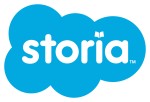
You may have read this piece (or one of the several pieces on the topic) yesterday or this morning:
Storia is in beta now and available for Windows PC through the website; an iPad version is coming later this month. The app itself is free and comes with five free e-books. A store contains over 1,000 other children’s e-books—many available in digital format for the first time—that can be sorted by grade level, reading level, age and character/series.
When the app officially launches in the fall, it will contain over 2,000 titles, reports the AP, “that can be bought directly from the publisher or from retailers.” But the Storia website also says, “Since Storia eBooks come with special features to enhance your child’s reading experience, Storia eBooks can only be read on the Storia eReading app.” I’m clarifying this with Scholastic—if these books are essentially apps that won’t be sold through e-bookstores like Kindle and Nook, that is certainly noteworthy.
via In Major Digitization Effort, Scholastic Launches E-Reading App For Kids | paidContent.
It is a pretty interesting move and one that I am not surprised by. The shift by Apple some time go makes this kind of move very attractive to publishers of large lists, as I wrote some time ago Apple has created an opportunity in the App space for publishers:
Apple’s more recent decision to enforce tough rules on in-App sales of content has been less popular. It has forced Amazon, Google, B&N and Kobo among others in publishing and other creative industries, to change their Apps to disable links to their ebook or content stores. Further it made it impossible for an ebook retailer to sell an ebook through the Apple in-App purchase system without giving 30% to Apple. Nasty eh?
The opportunity this created and that everyone missed , even me (till this weekend when it dawned on me), is for publishers to go direct to consumers and launch their own apps selling ebooks to readers.
Think about it, ebook retailers cannot make money from selling ebooks via Apple’s in-App sales because their margins simply won’t stretch that far. In the case of Agency titles they would be losing money, even on self-published works they might be losing money. However, a publisher, selling direct through their own app, or even a branded app in partnership with a number of other publishers in a given genre, could easily afford the 30% charge and even an administration charge too so long as it was kept low.
Apple has shifted the economics of the App-economy to disintermediate the distributors and empower the content producer. Sure, in doing so they have gained power and revenue potential for themselves, but they have created an opportunity for a savvy publisher who has a brand that readers identify with.
I would expect to see more of these from larger publishers as well as specialist ones (Witness for instance Amber Books’ Military History app). They make sense and they will hopefully sell books.
The question is whether they lead to the building of relationships with readers, a crucial gap in what iOS offers publishers. That lack of customer data was reportedly one reason why the FT eschews the app store for their own HTML based apps and subscription options.
There are many angles to cover and such apps can only form part of an overall strategy but I think Storia suggests large publishers are looking for opportunities and acting when they seem them!
Eoin
(Via Eoin Purcell’s Blog.)
































I have to say that anything that confines the usability of an eBook whether that be DRM, proprietary formats or application jails, is not a positive contribution to society. For all its weaknesses, the ePub format is our only hope for maintaining viable cultures. DRM can often be removed but proprietary formats and application jails are much harder to liberate. When companies that resort to these methods go belly-up, so does the culture that they locked up. There ought to be a law that prevents that outcome.